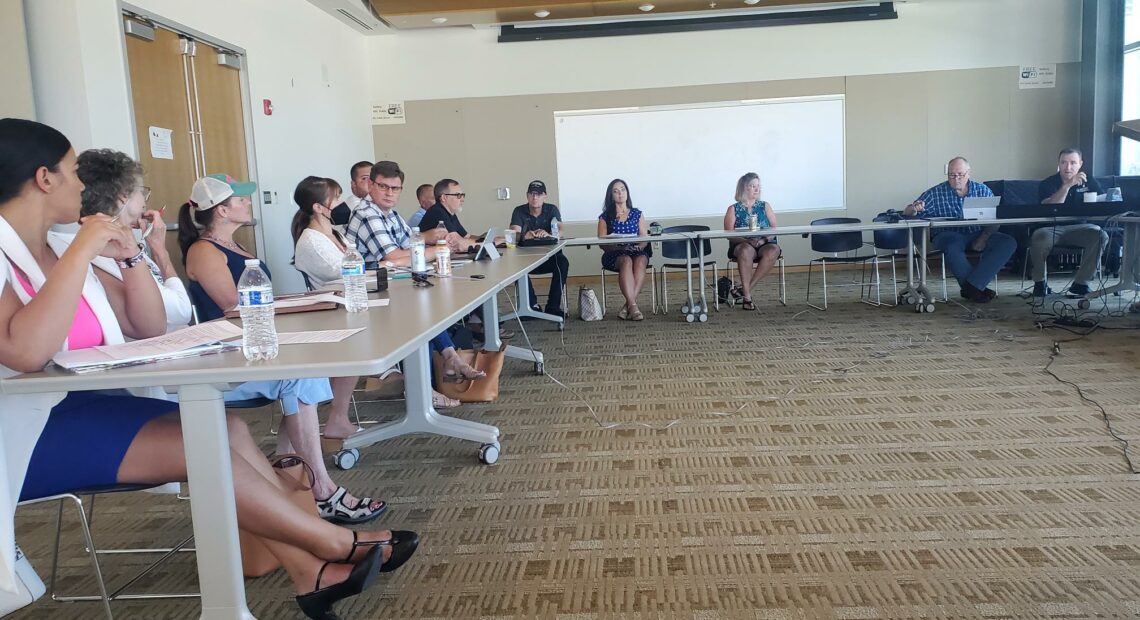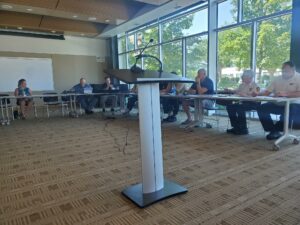
The First Bi-County Behavioral Health Advisory Committee Met In The Tri Cities
Listen
(Runtime 1:54)
Read
A plan to address the behavioral health needs of Eastern Washington is finally in the works. The first bi-county behavioral health advisory committee met with members from Franklin and Benton Counties.

Benton-Franklin Behavioral Health Advisory Committee
Sitting at the conference tables arranged in a U-shape were sixteen people from both counties including two fire chiefs, both county sheriffs, a veteran representative, plus many behavioral health specialists. The Benton-Franklin Behavioral Health Advisory Committee discussed adding a 17th member to the board that has lived experiences with behavioral health issues. They also discussed the lack of beds in the community and across the nation; healthcare worker shortages.
One woman during public comment, who identified herself as Christina, works locally at a counseling center, confirmed that staffing is a huge challenge. Being overworked and understaffed leads to poor quality of care.
“You know, all technicalities aside of about what everybody has talked about today, I just really want to ask, like, how do we make sure the care that comes out of this facility stays compassionate? I want I want to hear talk about that.”
One of the first goals of the committee is to choose a provider to run the Behavioral Health care center.. A provider will advise on how to remodel the facility. But there are already issues.
There are limitations put into the contract by the seller of the hospital. The Deputy County administrator for Benton county, Matt Rasmussen, spoke about the ‘No Wrong Door’ policy that the county proposed.
“The money we received for funding…we wrote the proposal saying that was the type of facility we were going to operate. Because we told them we wanted a No Wrong Door facility AND a residential detox. Now, the ‘No Wrong Door Facility’ will be at another location and the residential detox will be at the old KGH facility just because of the space.”
The state has given funding to Benton County based on a proposal that the counties would not turn away residents that needed care, regardless of income. Another location will be needed. One proposal discussed by the committee was creating a mobile crisis response unit that could be up and running quickly to aid the local law enforcement community in dealing with people experiencing behavioral health issues.
The next meeting will be in a month.
















